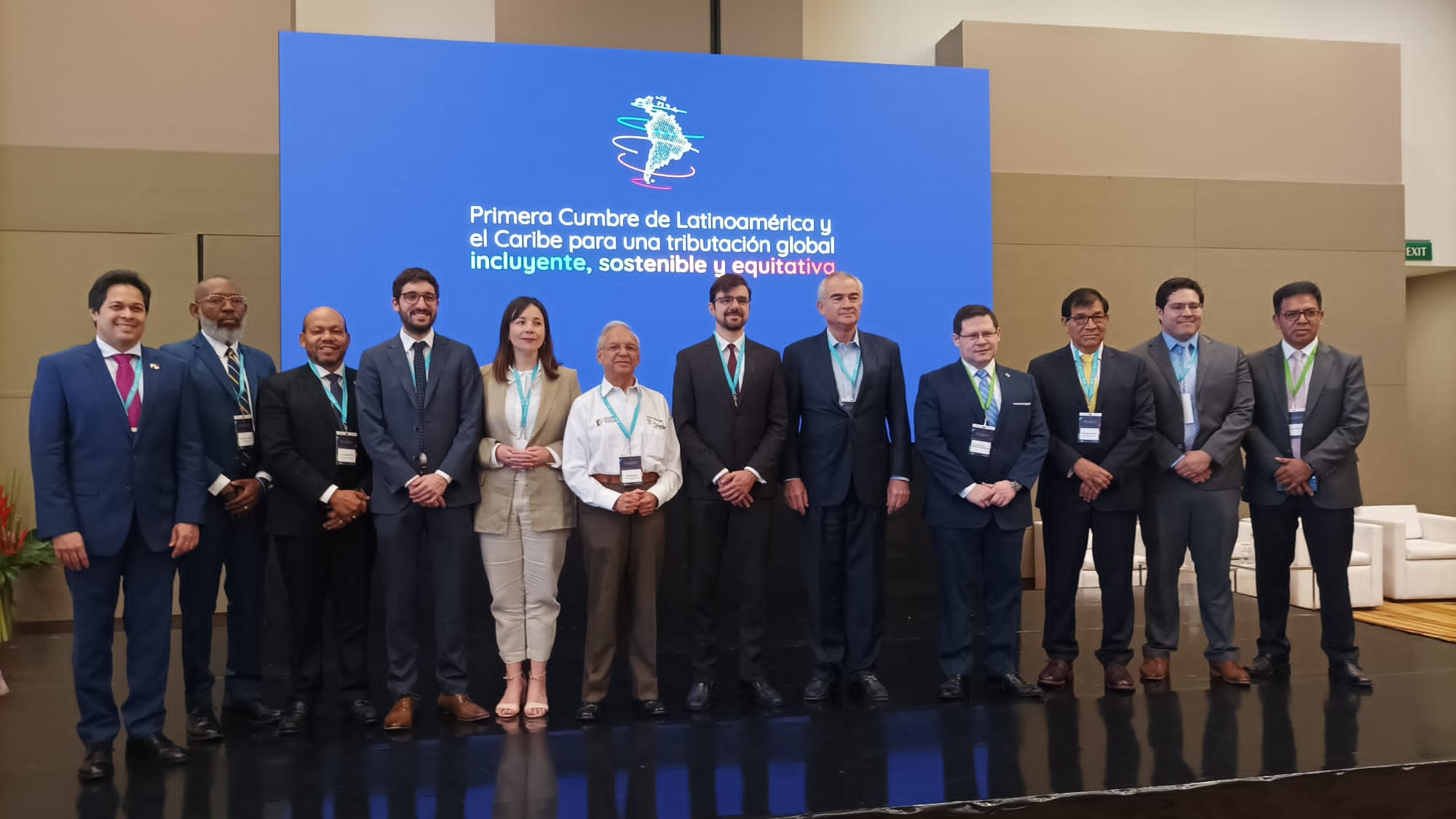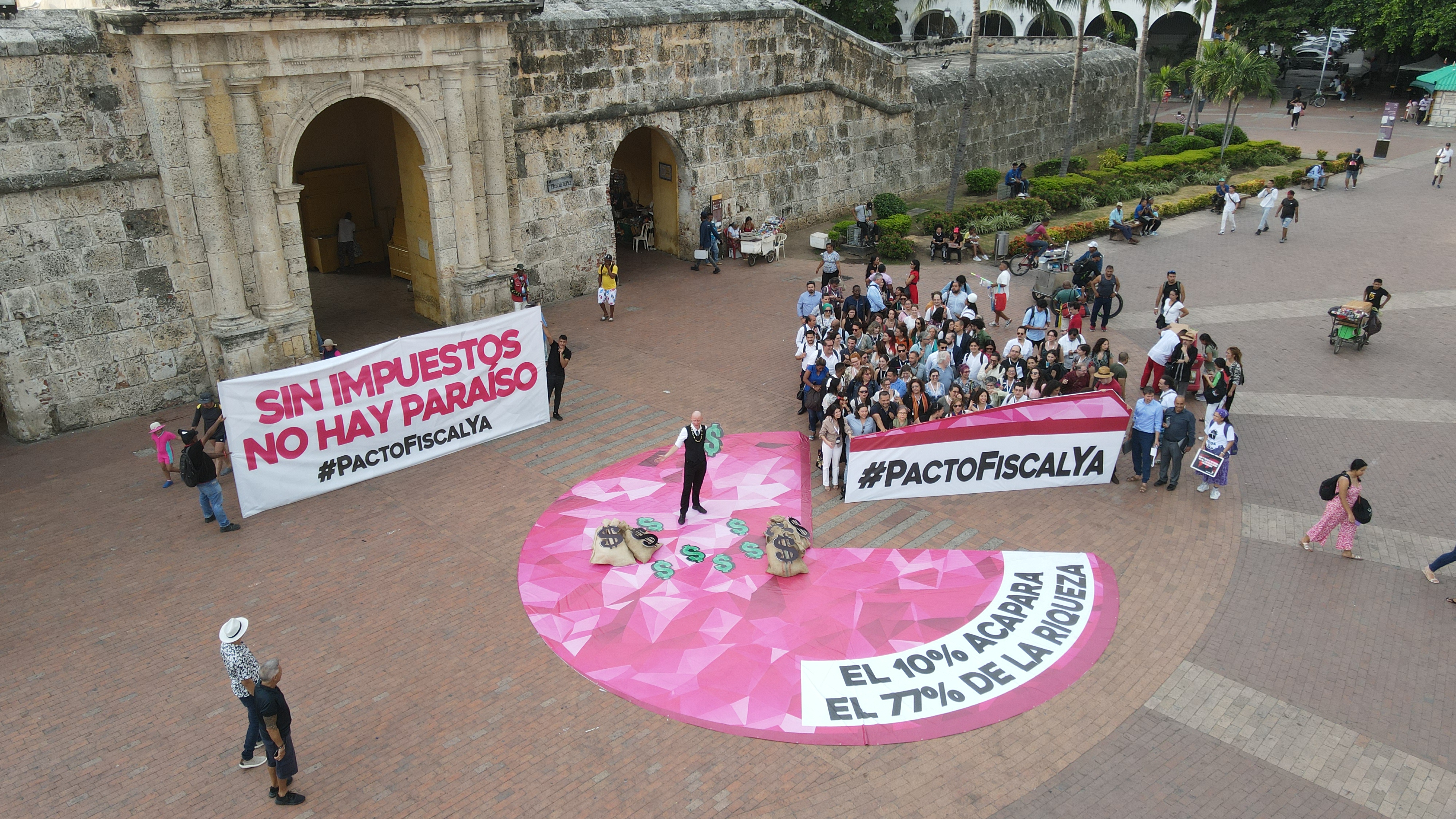
Cartagena Summit: A significant step towards fiscal justice in LAC
From 25- 28 July, GI-ESCR participated in the first Summit for Inclusive, Sustainable, and Equitable Global Taxation held in Cartagena de Indias, Colombia. During this event, 16 countries came together to establish a regional platform aimed at enhancing cooperation in tax policies within the region. The summit also sought to amplify their collective voice in international tax negotiations.
In collaboration with a core group of civil society organizations, GI-ESCR took a leading role in coordinating four days of activities that drew the participation of over 140 individuals from diverse sectors across the region. This inclusive gathering included representatives from public services, climate and feminist organizations, youth groups, human rights advocates, and indigenous movements. The successful collaboration among these groups stands as a significant example of cross-movement alliances for the cause of tax justice.

The activities and discussions throughout the summit were strategically designed to formulate strategies and narratives contributing to a broader campaign aimed at strengthening tax justice and public services. These efforts aligned with the realization of Economic, Social, and Cultural (ESC) rights and addressing the impacts of the climate emergency. One pivotal moment of the summit was the presentation of 10 recommendations by civil society organizations to the attending state delegations on matters of tax justice and regional cooperation. Over 60 civil society organizations from 20 countries contributed to these proposals, which were formally presented to the governments.

During the summit, GI-ESCR collaborated with partners such as the Tax Justice Network, the Initiative for Human Rights in Fiscal Policy, and Oxfam to organize two side events. The first event unveiled a jointly authored report titled "United for a New Fiscal Pact: Building a Roadmap for Latin America and the Caribbean." This report acknowledged the intersection of fiscal policy with international human rights commitments, offering recommendations for regional cooperation and international taxation. The second event, led by GI-ESCR, delved into the intersection of climate change and fiscal policies in Latin America, exploring potential fiscal reforms and mechanisms to address the climate crisis.
While the ministerial debates in Cartagena extended beyond official meetings, the summit did not see the highest-level ministerial attendance. Nevertheless, the outcomes of the summit mark a promising beginning toward a rights-based approach to fiscal policies in the region.
As a result of the Summit, countries in Latin America and the Caribbean, under the leadership of Colombia, Chile, and Brazil, have agreed to establish a new body to facilitate dialogue and information exchange. This initiative aims to achieve progressive and equitable taxation, combat tax evasion, and mobilize resources to ensure universal, sustainable, and high-quality public services. In a collective declaration, these countries identified key priorities for the next 12 months, including the progressivity of tax systems, green taxes, and international corporate taxation.
In terms of governance, Colombia has been designated to hold the pro tempore presidency of the new platform for the next year, with the Technical Secretariat responsibilities assumed by the Economic Commission for Latin America and the Caribbean (ECLAC). Additionally, an avenue for the voice of organizations and social movements will be established through a "civil society council," enabling their participation in future discussions and actions.
In summary, the first Summit for Inclusive, Sustainable, and Equitable Global Taxation marks a significant stride toward establishing more sustainable and rights-centered tax systems in Latin America and the Caribbean. The urgent need for collaborative efforts among governments to leverage tax policy as a tool for protecting both people and the planet cannot be overstated. The active involvement of civil society, which has played a pivotal role throughout this process, remains paramount.
In the coming months, GI-ESCR and its partners will collaboratively work towards launching a regional campaign. The campaign will advocate for increased tax cooperation among countries through the new platform, the alignment of tax systems with climate commitments and human rights, and the assurance that no one is left behind.





